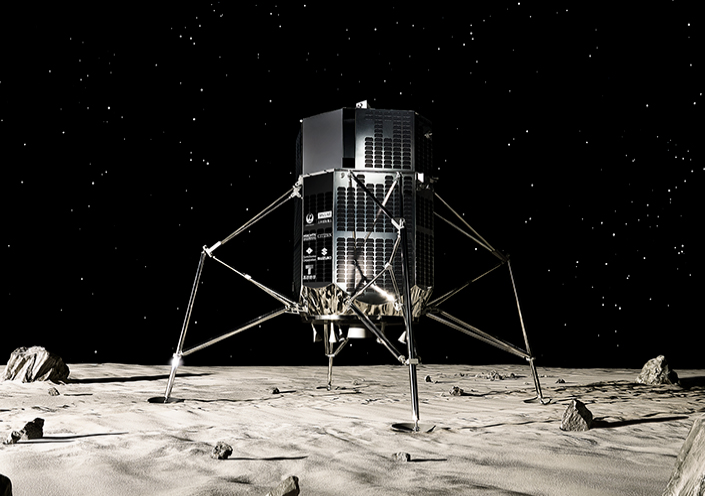UNSW partners with ispace to accelerate a lunar economy
The new agreement aims to use the moon’s resources to benefit a range of industries on Earth.
The new agreement aims to use the moon’s resources to benefit a range of industries on Earth.

UNSW Sydney has signed a Memorandum of Understanding (MoU) with Japanese lunar exploration company ispace, to jointly pursue research and development in space resources and infrastructure.
The MoU will enable UNSW and ispace to work together on areas of common interest, including technology development and space missions. UNSW students and staff could also participate in exchange programs.
Director of the Australian Centre for Space Engineering Research (ACSER) at UNSW, Professor Andrew Dempster, said the partnership with ispace is a natural fit for UNSW Engineering.
“As society becomes more reliant on satellites for a range of industries including communications, agriculture, transport, defence and more, the future of humans in space is heavily reliant on their ability to use resources in space. UNSW and ispace share this understanding and both believe the key to doing this is applying mining engineering discipline knowledge to space projects, and getting these two industries to talk to each other,” Prof. Dempster said.
ACSER and ispace are developing technology to tap water resources on the moon and start a space-based economy. If water, and therefore oxygen, can be extracted from the moon, humans could potentially spend more time in space to support and improve space infrastructure. Hydrogen from water could also be used along with oxygen for rocket fuel, to reduce the cost of longer or deeper space expeditions and discovery missions.
Prof. Dempster and Professor Serkan Saydam of UNSW’s School of Minerals and Energy Resources Engineering have been working on space resources for the past seven years. The pair leads project Wilde, which is determining how we can process water that resides in the permanently shadowed craters at moon’s poles. They believe it is technically possible and will be economically viable.
Prof. Saydam, an internationally renowned specialist in off-Earth mining operations, said partnering with ispace will accelerate UNSW’s work, including the development of its space resources missions.
“To achieve our goal to mine water on the moon, a raft of factors needs to be considered. In addition to the technology, we need to have the right legal frameworks, ethics, government policies and environmental standards in place. ispace shares this holistic approach to our work and I am excited about what we may achieve together,” he said.
Prof. Saydam and PhD student Sophia Casanova are working with Dr Carlos Espejel at ispace to create a new space mining code - LORS-101 (Lunar Ore Reserves Standards 101) - for reporting lunar exploration results, resources and reserves.
Dr Espejel said ispace chose UNSW as a key partner to help realise its vision to create a lunar economy underpinned by use of space resources. He said he hopes the partners can jointly accelerate the technology and know-how necessary for space exploration, space transport and space resources utilisation.
UNSW and ispace will also work together on aspects of the federal government and Australian Space Agency’s Moon to Mars initiative, including scientific investigation using mineral and other substances of the moon.
Profs. Dempster and Saydam have been long-term advocates of Australians mining in space and believe space resources is an area where Australia should be looking to have an advantage by exploiting its large mining companies, strong mining engineering research, and leading mine automation.
“Mining is the niche Australia can have in space, and it's potentially a trillion-dollar industry. We have the opportunity to make this happen,” Professor Dempster said.